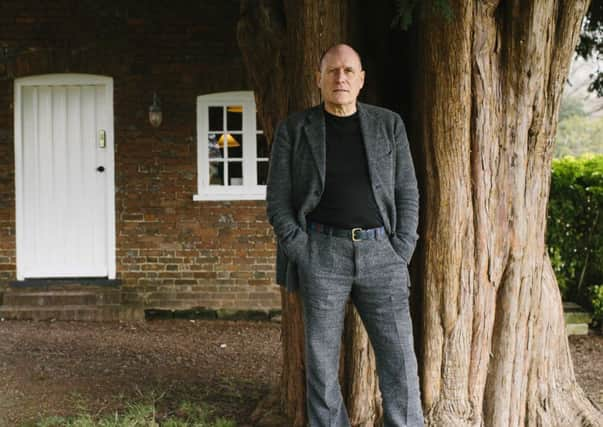Book review: The Lovers of Amherst


The Lovers of Amherst
By William Nicholson
Quercus, 298pp, £16.99
William Nicholson co-scripted the film Gladiator, but his novels are mostly all about love, romantic love, idealistic love and what one of his characters in this new novel calls “real full-on passion”. Each of his eight most recent novels stands alone, but they are inter-connected and several characters appear in more than one of them. Family trees are helpfully appended to this new novel, and, significantly besides the usual marks showing marriages and heredity, there are dotted lines indicating “a romantic involvement”.
Amherst in Massachusetts is best-known as the home town of the reclusive American poet Emily Dickinson, and she is at the centre of this novel. It has a twin narrative. One strand tells the story of the passionate affair between Emily’s brother Austin and a young married woman, Mabel Loomis Todd, who was responsible after Emily’s death for editing her work and securing its publication. The other strand, set in 2013, tells of the visit to Amherst of a young Englishwoman, Alice, who has the idea of writing a screenplay about the Austin-Mabel romance. She is devoted to Emily’s poetry and fascinated by the idea that Emily promoted her brother’s affair in order vicariously to experience sexual passion, Austin, one should add, was himself a married man, and father of three children when he met Mabel. His wife, Sue, resented and came to hate Mabel, whose husband, David, saw no reason why he shouldn’t share his adored wife with another man. Nicholson makes his complaisance credible. As for Austin himself, “all he knew was that this late love, coming into sunlight after the long years of shadow, was a gift from God”. This is a very convenient realisation, freeing him from any need to feel guilty on account of his infidelity.
Advertisement
Hide AdNot surprisingly, because balance in this sort of novel is necessary, young Alice will find a comparable love in her two weeks in Amherst. Nick Crocker is a fiftysomething English academic, whose university contract is not being renewed, and whose marriage to a rich wife is about to end in an agreeable divorce. He has a reputation as an accomplished seducer, bedding his students, and is also, as it happens, the former lover of the mother of Alice’s ex-boy-friend, now best friend, Jack. Fortunately he also loves Emily’s poetry, and always has a suitable verse to hand. He is, however, more complicated and more interesting than Austin Dickinson, and it is not difficult to understand why Alice is simultaneously attracted to him and critical of him.
There is always an obvious danger with this kind of novel, in which two parallel stories, divided by time or, sometimes, place, are narrated. Readers are quite likely to find one much more interesting and satisfying than the other, and that may well be the case here. Though Nicholson very skilfully and engagingly evokes the rhythms of life in nineteenth-century Amherst, and conveys something of the Jamesian charm of respectable New England, he can’t make Austin and Mabel other than rather tiresome. Their high-minded conversations and the letters they exchange (which he quotes)are terribly self-satisfied and, to my mind, very boring. The conversations between Mabel and her husband David are even worse, and, though one has the impression that he admires Emily – and certainly loves her poetry (as, I confess, I don’t), there is something decidedly creepy about her role as a female Pandarus. The rejected and despised wife, Sue, seems actually the most admirable character in Amherst, though I don’t suppose one is expected to find her so.
The modern story is very much better, even though it is fashionably written in that tiresome present tense. This is partly at least because, while the Austin-Mabel dialogue is couched in terms of soppy mutual admiration, Alice and Nick engage in a sharp and sometimes witty duel of words. Whereas Mabel knows exactly what she thinks of Austin and what she greedily wants from him, Alice is not at all sure of whether she even likes or approves of Nick, while being at the same time fascinated by him. There is, therefore, an edge to their exchanges. Mabel is certainly a well-drawn character, selfish and greedy; unfortunately she is also decidedly boring. (Nicholson includes the text of a story she wrote; it is dreadful.) Alice, on the other hand, is alive and interesting, even if given, like Mabel, to rather vapid discussions of the nature of love. She also has the intelligence to probe Nick’s defences, and some of the scenes between them are quite beautifully done. Her exchanges with Jack, her confidant or sounding-board, are also excellent. I assume they will both appear in a future Nicholson novel, and will be interested to learn in what direction their relationship will go. That one has such an interest is a mark of his ability to create characters sufficiently capable of development to leave one wanting to know what happens to them next – even though Jack, discussing Alice’s screenplay, insists that to get it right she must know how it ends before she begins writing. This is interesting advice, though not necessarily good advice, and I would be surprised if it is advice that Nicholson himself follows.
Inasmuch as his connected novels may be read as a roman-fleuve, one wants to know where the current will take his characters.
FOLLOW US
SCOTSMAN TABLET AND MOBILE APPS